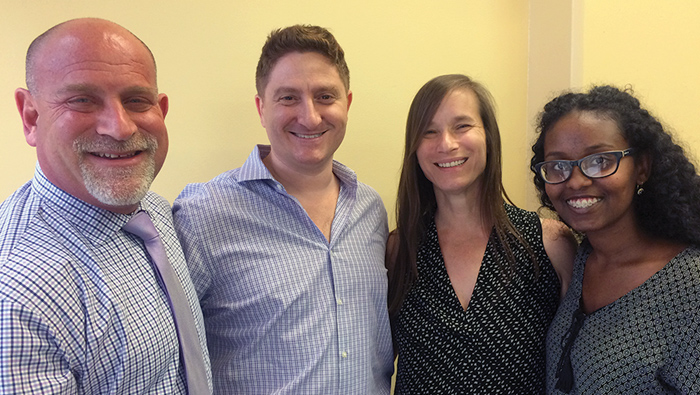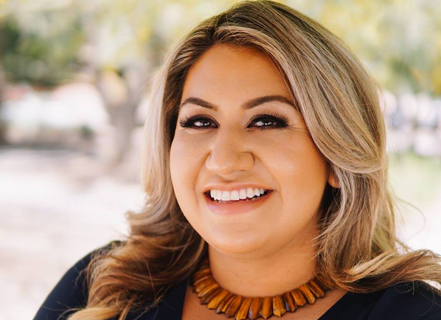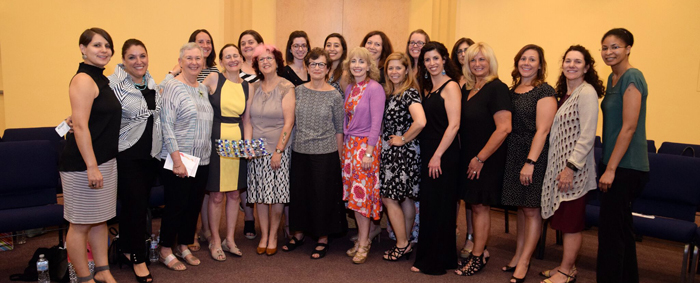Sefitu Ezra was only 7 years old when her family arrived in Israel in 2004. Up until that point, she had only known life in the small Ethiopian village of Sekota. When Sefitu and her family (her mother, father, sister and three brothers) arrived in Israel, they were placed in the Absorption Center in Beer-Sheva, where they lived for almost two years before moving to an apartment in the same city. Once they moved to their apartment, Sefitu started third grade – though she had never been to school before.
Today, Sefitu is a high school graduate with her sights set on attending Ben-Gurion University of the Negev and then continuing to medical school. Sefitu’s academic success is due, in part, to her participation in the Ethiopian National Project’s SPACE (School Performance and Community Empowerment) Scholastic Assistance Program.
“SPACE provides social, emotional and nutritional support for seventh-12th graders giving them everything they need,” explains Grace Rodnitzki, Director of International Relations, Ethiopian National Project. “The program primarily helps the Ethiopian Israeli community, but also other Israeli children so that they can thrive in school and become fully integrated into Israeli society.”
The Ethiopian National Project was created as a partnership of the Jewish
Federations, Keren Hayesod, the Jewish Agency for Israel, the American Jewish Joint Distribution Committee, the Government of Israel and the Ethiopian Israeli community itself to ensure the full and successful integration of Ethiopian Jews into Israeli society. Today, there are 141,200 Israelis of Ethiopian origin – about 1.7% of the Israeli population. Thirty-eight percent of the Ethiopian immigrants have arrived since 2000.
“After the creation of the state of Israel and after the formal proclamation from the rabbis of Israel that Ethiopian Jews were indeed Jewish by the rabbis in Israel, that what set into motion the major secret operation that brought so many Ethiopian Jews to Israel,” explains Grace. The first secret operation was Operation Moses in 1984-85 and the second operation was Operation Solomon in May 1991, where more than 14,000 Ethiopians Jews arrived in Israel in 36 hours.
Grace was in Israel during Operation Solomon, which was life-changing and what led to what she calls her “aha moment.” “Seeing the newcomers being taken to their new homes and wondering how challenging it would be for them,” she remembers. “I came to Israel to make a difference and do my part; this is how I want to do my part.” That’s what led her to ENP.
The biggest challenge facing the Ethiopian Jewish community is that they came from an agrarian life. “In Ethiopia, they were farmers and shepherds, and didn’t need a formal education to be successful and to support their families,” explains Grace. “When you place that community into Israel – a fast-paced modern technological society – then all of a sudden the challenges become almost insurmountable.”
These challenges are part of the reason why the SPACE program is so important to the future success of the community. SPACE includes an individual mapping of each child’s needs, four hours of weekly instruction, a nutritious lunch, an Ethiopian-Israeli community counselor, a pedagogic counselor and school-based coordinator.
Extracurricular activities, including visits to universities, field trips to museums and leadership-building exercises, are among the additional activities offered to complement the holistic program, while comprehensive work with parents ensures they are full partners in their child’s progress.
“The Federation has a sense of obligation and commitment to take this story to the next chapter,” says Robin Loeb, COO of Jewish Federation of Greater Phoenix. “We’ve brought the community to Israel, now there is a struggle and danger of them not being able to succeed, but this program is an amazing program to encourage a bright and successful future for young Ethiopian Israelis.” Grace and Sefitu came to Arizona this August as part of a Federation initiative to strengthen our community’s ties to Israel. They spoke at two Federation gatherings and also at the National Young Leadership Cabinet Retreat and the I-LEAD Conference.
ENP obtains its funding from Federations, and the Government of Israel has approved a four-year funding commitment which will cover just under half of the total cost of funding a child in SPACE, yielding a cost to ENP of $588 per child per year. “For the coming year, we have funding for 4,766 children, but we have 8,729 children that need support – we need more funding,” says Grace.
Grace feels that if the majority of the seventh-12th graders can be reached through SPACE, “It will prevent the continued investment in a community in need because the young population will be able to support their own children, and be an example for others as a successful Ethiopian Israeli community.”
Sefitu’s siblings are further proof of how well the SPACE program benefits its recipients. Two of her older brothers were in SPACE. One brother is studying engineering at Ben-Gurion University after serving in the IDF and her other brother, who was a paratrooper, is studying to become a nurse. Her younger sister is also in SPACE – she’s in the 11th grade. “I love to help people, and want to make people feel better. I also want to give back all I have received, and know I can make a difference,” says Sefitu. “SPACE helped me in math, English and the sciences. ENP helped me believe I can do whatever I set my mind on doing. And that’s what I’m doing today.”






